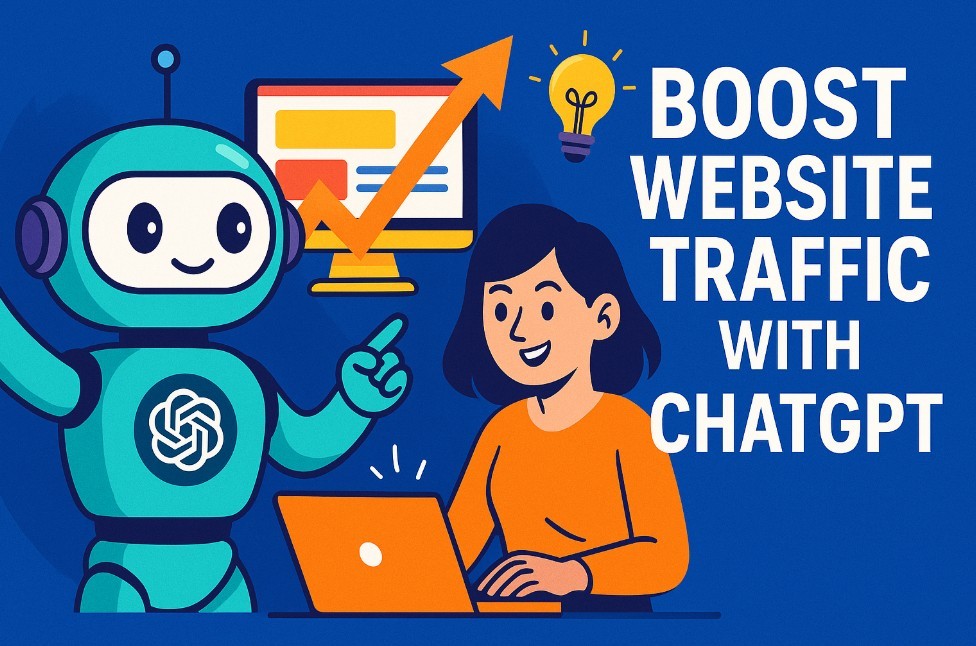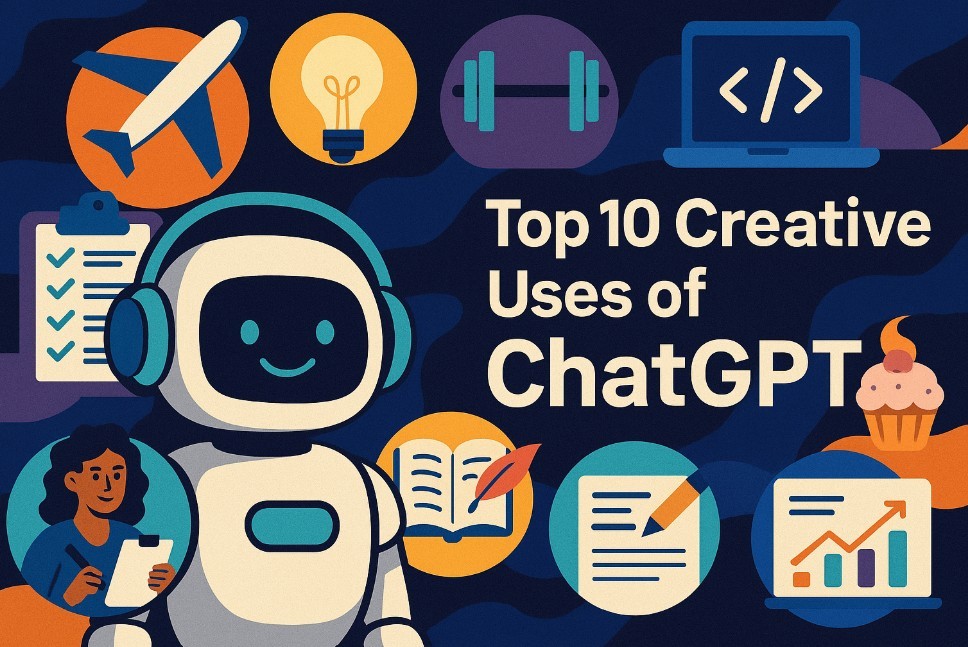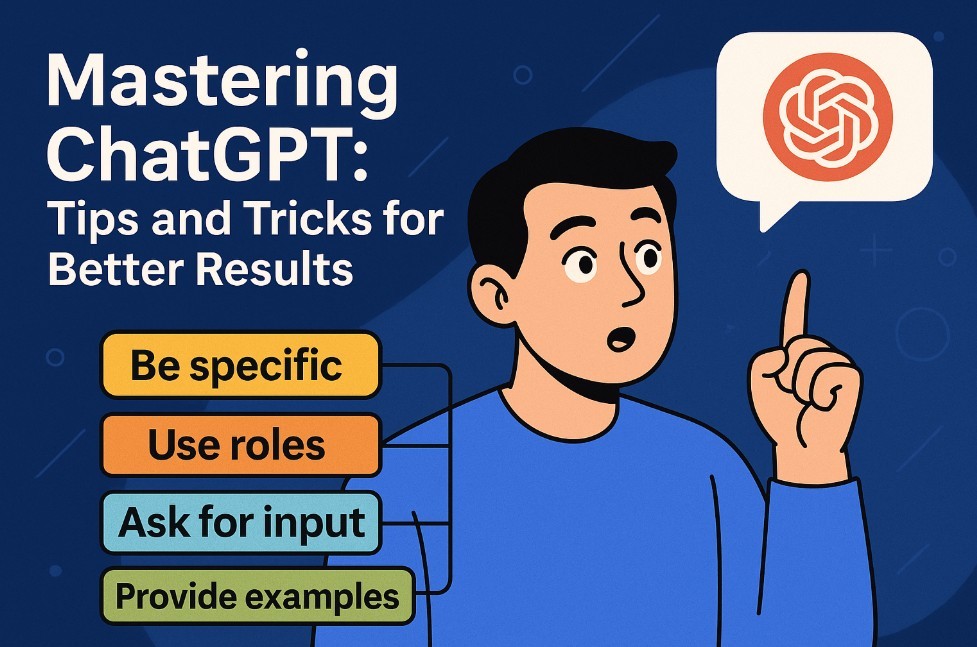The Impact of ChatGPT Outage: Causes, Solutions, and Human Dependency on AI
 Meta Apps Outage: Understanding the Incident, Causes, and Recovery Progress Meta Apps Outage: Understanding the Incident, Causes, and Recovery Progress According to Meta, there has been a worldwide outage that has caused problems for some users utilizing the WhatsApp messaging service as well as the ... |
 Instagram, Facebook, and WhatsApp Go Down in Meta Outage: Growing Dependence on Social Media Instagram, Facebook, and WhatsApp Go Down in Meta Outage: Growing Dependence on Social Media On Wednesday evening, Meta’s key platforms—Instagram, Facebook, and WhatsApp—experienced a global outage, causing disruptions for millions of users worldwide. |
In recent days, users worldwide have experienced significant outages with ChatGPT, an AI-powered chatbot developed by OpenAI. This disruption has highlighted the growing dependency of humans on artificial intelligence (AI) systems and the potential consequences of such reliance. This essay explores the causes of the outage, potential solutions, and the broader implications of human dependency on AI.
 |
The service disruption came the same day when META’s Facebook, WhatsApp and Instagram faced similar connectivity issues and went offline worldwide. Nevertheless, if you rely on ChatGPT, keep an eye on the official status page for updates.
Given its massive user base of over 200 million weekly active users, ChatGPT is a prime target for cyberattacks. In February 2024, a group called Anonymous Sudan claimed responsibility for a DDoS attack that coincided with another service outage. OpenAI hasn’t confirmed whether the current outage is due to a similar attack.
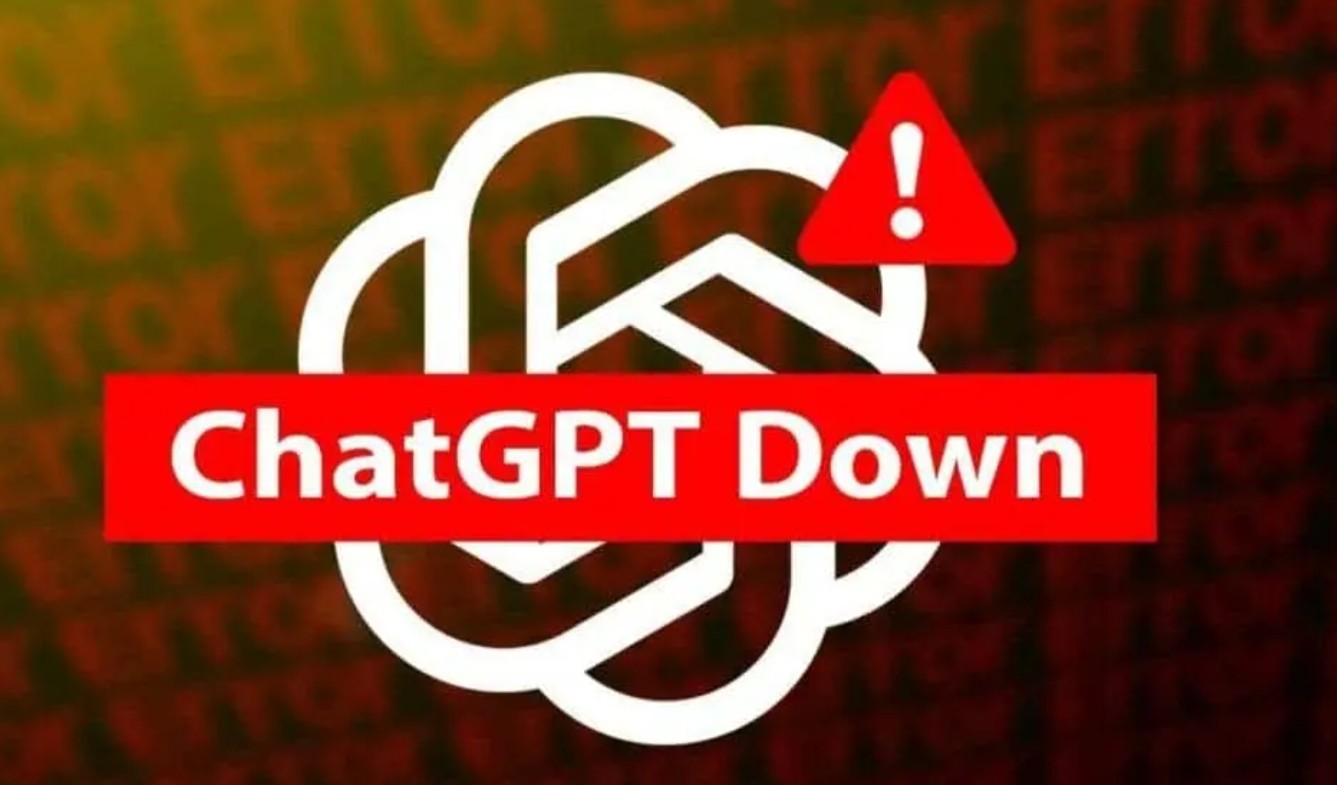 |
Causes of the Outage
The outage was triggered by a technical issue within OpenAI's infrastructure. According to OpenAI, the problem was identified and efforts to resolve it were underway. While the exact cause has not been publicly disclosed, it is speculated that factors such as increased user traffic, server problems, or system updates may have contributed to the disruption.
| ChatGPT is currently unavailable. Status: Identified – We have reports of API calls returning errors, and difficulties logging in to platform.openai.com and ChatGPT. We have identified the issue and are working to roll out a fix. |
Solutions to the Outage
OpenAI has been actively working to restore services. The company has communicated through social media, assuring users that a fix is being rolled out and that they are working as fast as possible to return services to normal. Users have been advised to perform a "hard refresh" of their browsers or clear their cache to mitigate access issues.
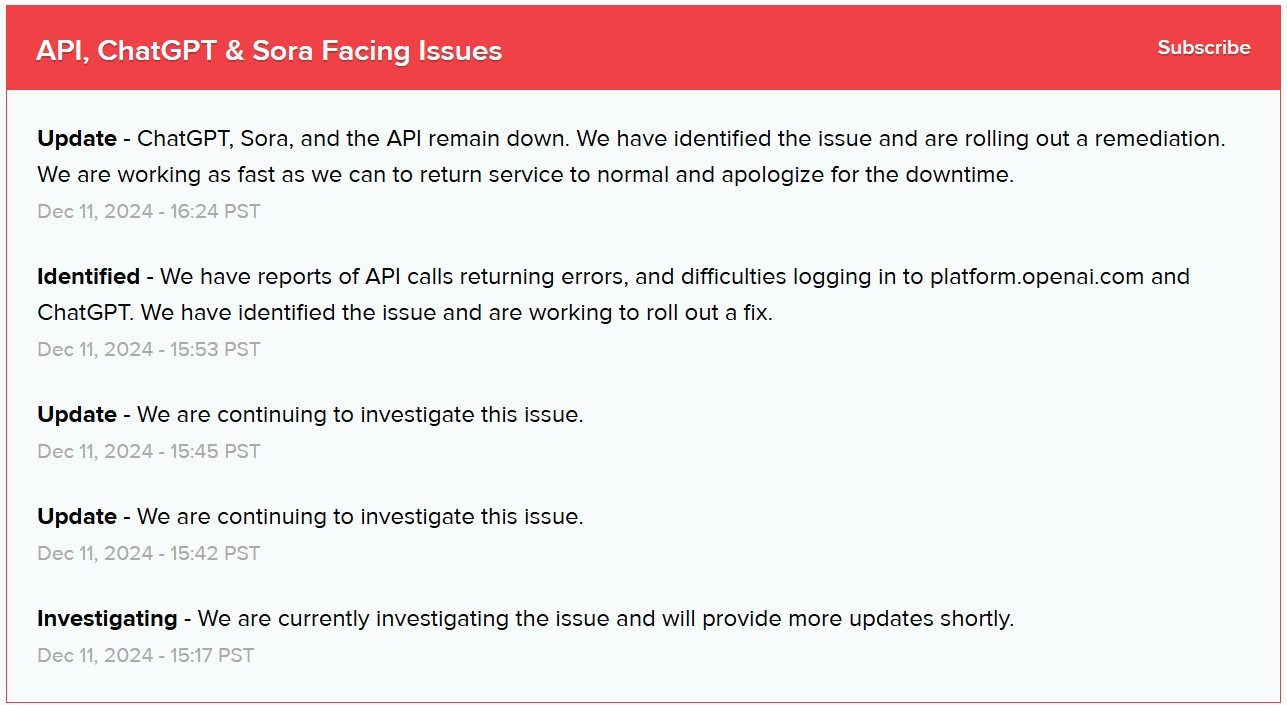 |
Human Dependency on AI
As of 2024, an estimated 400 million people globally use AI-powered services like ChatGPT for various tasks, ranging from answering questions to aiding in professional work. The outage has underscored the extent to which people rely on AI systems. This dependency can lead to significant disruptions when these systems are unavailable. Overreliance on AI can also result in reduced critical thinking, creativity, and independent problem-solving skills.
Impact on Daily Life:
-
Personal Use: Many individuals use ChatGPT for quick answers, language translation, and even as a conversational companion. The outage has left millions without immediate access to these services, causing frustration and delays.
-
Professional Use: Businesses and professionals use AI for customer service, content creation, and data analysis. The downtime has likely impacted productivity and customer satisfaction in companies relying heavily on AI tools.
-
Educational Use: Students and educators use AI to assist with homework, research, and teaching aids. The outage has disrupted learning processes and created hurdles in accessing educational resources.
Broader Implications
The dependency on AI raises critical questions about the resilience of such technologies. It highlights the need for backup systems and alternative solutions to ensure continuity in case of technical failures. It also calls for a balanced approach to integrating AI into daily life, ensuring that human skills are not eroded by overreliance on technology.
FAQs
-
What caused the AI outage? The outage can be caused by various factors, such as server overloads, software bugs, maintenance activities, or unexpected technical issues.
-
How long will the AI service be down? The duration of the outage depends on the severity of the issue. The service provider will usually provide updates on expected resolution times.
-
What steps are being taken to resolve the AI outage? The technical team is working to identify and fix the root cause of the issue. This may involve system diagnostics, code fixes, or hardware replacements.
-
Is my data safe during the AI outage? Service providers typically have robust data protection measures in place. However, it's always a good practice to verify data safety policies with the provider.
-
How can I stay updated on the status of the AI outage? You can stay updated through official channels such as the service provider's website, social media accounts, or status pages.
-
Are there any alternative services I can use during the outage? Depending on the functionality, you may find alternative AI tools or manual processes to temporarily fill the gap.
-
What should I do if I experience issues even after the AI service is restored? If problems persist, contact customer support for assistance and provide details of the issue for quicker resolution.
-
Will I be compensated for the downtime caused by the AI outage? Compensation policies vary by provider. Check the terms of service or reach out to customer support for information on compensation.
-
How can I prevent future disruptions caused by AI outages? While you can't control the service provider's infrastructure, you can implement contingency plans, including backup tools and processes.
-
What is the long-term impact of AI outages on businesses and users? AI outages can lead to productivity losses, delayed projects, and customer dissatisfaction. It's essential for businesses to have robust mitigation strategies in place.
| The recent ChatGPT outage serves as a reminder of the importance of maintaining a balance between leveraging AI technology and preserving human skills and capabilities. While AI systems offer numerous benefits, it is crucial to remain mindful of the potential risks associated with overdependence on these technologies. This incident underscores the need for robust infrastructure, contingency plans, and a thoughtful approach to integrating AI into our lives. |

